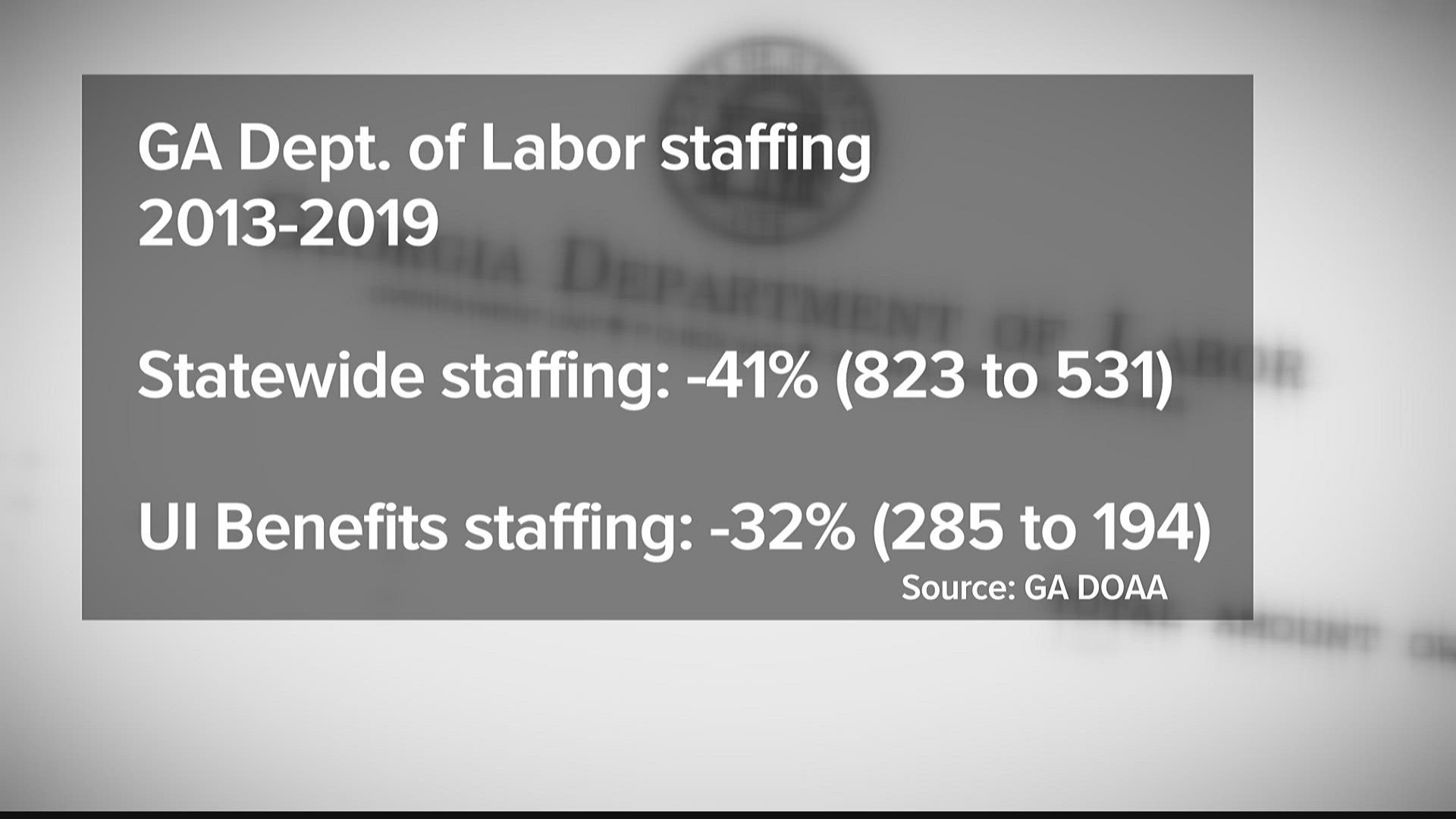ATLANTA — Once the pandemic began in 2020, hundreds of thousands of Georgians joined the unemployment line. 11Alive received messages daily from individuals struggling to receive unemployment benefits, and also in many cases, they said they couldn't reach anyone on the phone for assistance.
The reasons people's benefits were held up varied.
"(It was) a big stepping stone in between where I was then and where I am now," said Emily Mooneyhan of the unemployment benefits she received in 2020. "I was able to gain employment, finish my degree, I'm starting the second year of my contract. Things are going well."
Mooneyhan said she was able to use the unemployment checks she received as a bridge to better days. It took weeks though, she said, to receive her benefits because of several hold-ups.
She was also one of the many that couldn't get anyone with the state on the phone for help.
"Hours of phone calls," she said. "I used social media, Facebook, Twitter to try and reach anybody to reach out and say hey I need help."
11Alive eventually connected Mooneyhan with a Georgia Department of Labor representative and they resolved the issues with her benefits.
She wasn't alone though.
An audit released Wednesday from the Georgia Department of Audits and Accounts reports "Call volume increased significantly during the pandemic; however, only 4 percent of calls were answered."
But Georgia Department of Labor Commissioner Mark Butler takes issue with the 4 percent figure being highlighted in the report and he calls the figure an "unuseable number."
The figure is a one-month sample he said from April to May of 2020 and lacks context.
"During that time there was such a high volume of calls, that is actually 360,000 phone calls that we did, were able to answer," Butler said. "That comes to about 10- 11,000 calls a day."
In March of 2020, as the first COVID-19 cases were reported in Georgia, the Department of Labor received 635,000 calls, six times the previous month.
By April and May of 2020, more than 9 million calls were being made each month, a figure Butler said was impossible to respond to.
"In an emergency situation with that kind of influx when you're getting 9 million calls in a one-month period, there is no way physically, I mean you would have to have an army of 10,000 people," he said.
Butler said the 4 percent figure in the audit also didn't take into account social media messages, e-mails, and voicemails his staff did reply to.
Issues with processing claims and responding to applicants were also driven by staffing issues, which the audit noted.
From 2013 to 2019 unemployment trended downward, which led to a reduction in federal funding which is a major source of the department's funding.
That led to reduced staffing in the office. From 2013 to 2019 statewide Department of Labor staffing dropped 41 percent, going from 823 employees to 531. Employment within the Unemployment Insurance Benefits division dropped 32 percent during that same timeframe, from 285 employees to 194.
Despite being understaffed and many people reporting delays in receiving their payments, in the first full year of the pandemic GDOL still paid out $14.6 billion in benefits, a drastic increase from $302.3 million during the previous year. A large portion of that increase included unemployment benefits from federally funded programs.
Butler added one source of people's unemployment benefits being delayed was the addition of federal funds that increase unemployment benefits.
The federal funds came with new requirements and the need for states to build new processing and payment systems on the fly.
It was a curveball that added more work to an already overworked staff. Butler said his office has provided feedback to the federal government for future scenarios.
"One of the things we have told them in the future let's try to do a better job of communicating with the policymakers from Washington before we run into something like this so we can have our input on the front end," he said. "There is a lot of things in the CARES Act that were good. There are a lot of things in the CARES Act that weren't so good."

